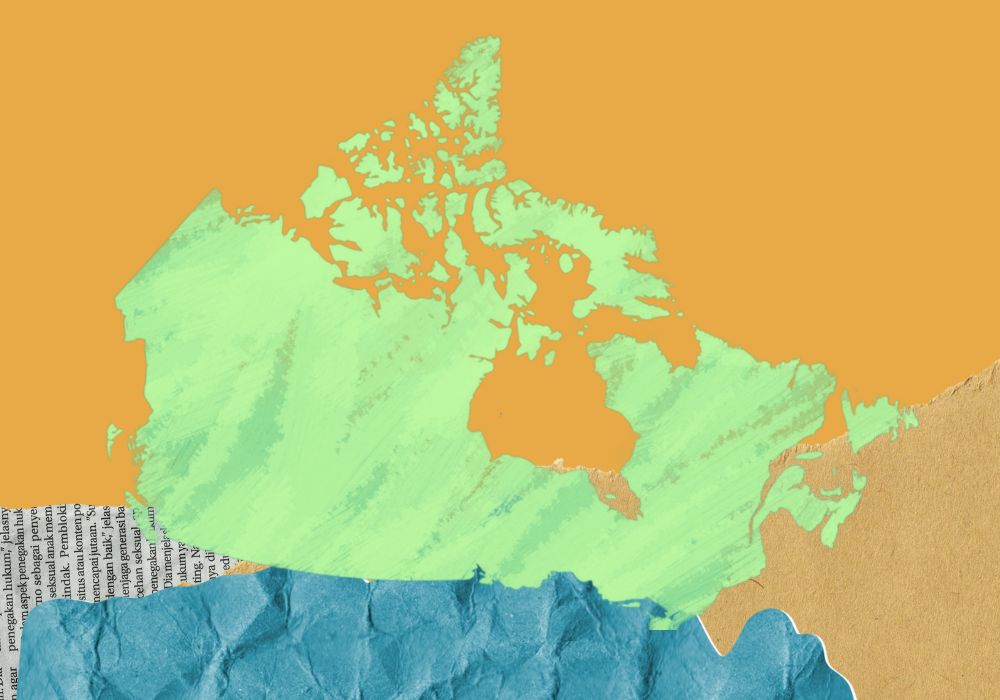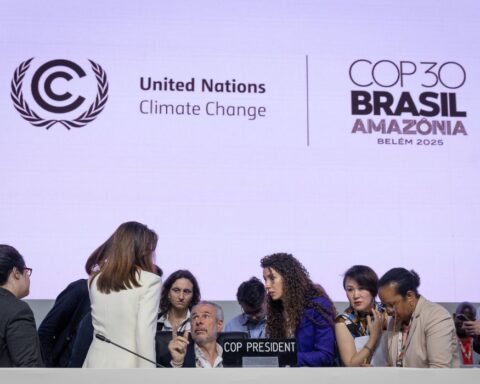Earth Day always makes me reflective. Celebrated globally for 55 years, it’s a reminder that the struggle for environmental progress is not a sprint. It’s more like a multi-generational relay – and every April 22 gives us an opportunity to recommit to the race.
Next week, the new government of Canada will be revealed. And regardless of who wins the election, our nation is about to embark on a new chapter in the climate change discussion. The consumer carbon tax is gone. Because this single policy was so dominant in the climate change debate, its repeal allows considerable space for a refocusing on other solutions.
So where do we go from here?
I’ll share more specific policy recommendations after election day, but here are three priorities that need to form the core of a renewed case for climate change progress:
1. Make life more affordable
After living through the most significant inflationary period in decades, Canadians are now faced with another economic threat from the destructive and chaotic trade actions of the Trump administration. That fundamental fact will colour all policy actions in this country in the months and years ahead – and climate policy is no different.
The good news is that many of the solutions we need to grow our economy and cut emissions involve technologies and actions that can actually improve day-to-day affordability.
Case in point: heat pumps. Previous research done by the Canadian Climate Institute calculated the cost differences between heat pumps and gas heating combined with air conditioning. The policy context has changed since the time of the report, but when you add it all up, heat pumps continue to beat the gas option on price alone in most places across the country.
As Canadians switch from fossil fuels to better, more energy-efficient electric technologies, they will save money on energy costs over time: average household spending on energy is expected to decrease 12% by 2050.
RELATED
How Canada’s political parties are navigating a public rift on climate
Climate takes a back seat, but the energy transition looms large over Canada’s election
The facts of climate progress are the antidote to pessimism
The same is true for renewables such as solar and wind, which now provide cheaper power than new fossil fuel plants and most existing fossil fuel facilities.
That is unequivocally good news for climate action. There is no path to a net-zero future without powering the majority of our economy with new clean electricity – upwards of two to three times more than is currently on the grid.
2. Build a more competitive economy
Despite Trump’s attempts to slow down decarbonization, other jurisdictions all over the world are accelerating the transition to clean energy. These jurisdictions are precisely the ones Canada needs most to diversify its economy away from an increasingly protectionist United States.
The European Union, for example, is forging ahead with action to stamp out emissions: it is expected to solidify its 2040 emissions target in the coming months that would see the trading bloc cut carbon pollution by 90%. The United Kingdom is planning to meet all of the country’s power demand with clean electricity by 2030 – that’s after closing its last coal-fired power plant last September.
India, the world’s third-largest emitter, is expected to launch a new carbon market in October of 2026. And in China, which already has the world’s largest carbon market, the government is expanding coverage to include steel, cement and aluminum. That will add about three billion tonnes of emissions to the program and will mean that more than 60% of China’s total emissions are covered by the carbon trading system.
Even within the United States, 24 states in the U.S. Climate Alliance that represent close to 60% of the national economy have served notice that they will cut emissions in half by 2030.
All this will have profound consequences for Canada’s economic competitiveness. Decarbonization is where the business opportunities are: according to the International Energy Agency, investments in clean energy were expected to reach $2 trillion in 2024, almost double the amount invested in fossil fuels. The agency sees global demand for fossil fuels peaking before 2030.
Canada needs good climate policies to compete in a world where more of our major trading partners, including the European Union and the United Kingdom, are putting carbon border tariffs in place. In fact, even the United States is considering similar measures.
Fortunately, industrial carbon pricing can reduce the cost of these tariffs and keep revenue within our borders to invest in emissions-reducing projects. That’s a policy win that is helping drive emissions down while keeping costs low for companies – about the cost of a Timbit per barrel of oil. Not only that, these systems have nearly zero impact on household costs.
Canadian climate policy will need to lean into these benefits to stay competitive in a rapidly changing international environment.
3. Protect Canadians from extreme weather disasters
At its core, climate change is an issue that threatens the security and livelihoods of communities across Canada. And this threat will only increase over time.
Last year was the costliest for insured climate damages by far, at more than $8.5 billion. That shattered the next-closest year on record, which was in 2016 when the Fort McMurray wildfires drove the severe-weather price tag to $6 billion. The 2024 tally includes the Jasper wildfire, flooding in Quebec and Ontario, and the multibillion-dollar hailstorm in Calgary.
These impacts are just part of the overall cost of climate change. Previous research from the Canadian Climate Institute estimated that by this year damages from climate change would shave off $25 billion from the Canadian economy relative to a stable-climate scenario.
These losses add up in a variety of ways, but to give one real-world example, during the record-setting forest fires of 2023, thick smoke engulfed cities in Ontario and beyond. In just one week, these smoke-filled skies added more than $1 billion in health costs to the province.
Policymakers need to address these threats to our communities to ensure that Canadians across the country are better prepared for future climate disasters.
One of the oft-repeated themes of Earth Day is “Think globally and act locally.” In this next chapter of the Canadian climate change discussion, we need to keep this front of mind like never before. Donald Trump’s incoherent and economically illiterate ideas have plunged our country into a wholesale re-examination of our future. Good climate change policies are not a multilateral “nice to have”: they are a critical contribution to keeping life more affordable, making the Canadian economy more competitive, and keeping our communities safer.
Rick Smith is president of the Canadian Climate Institute, the co-author of two bestselling books on the effects of pollution on human health, and the executive producer of Plastic People, a 2024 documentary chronicling the damage done by microplastics in the human body.
The Weekly Roundup
Get all our stories in one place, every Wednesday at noon EST.







